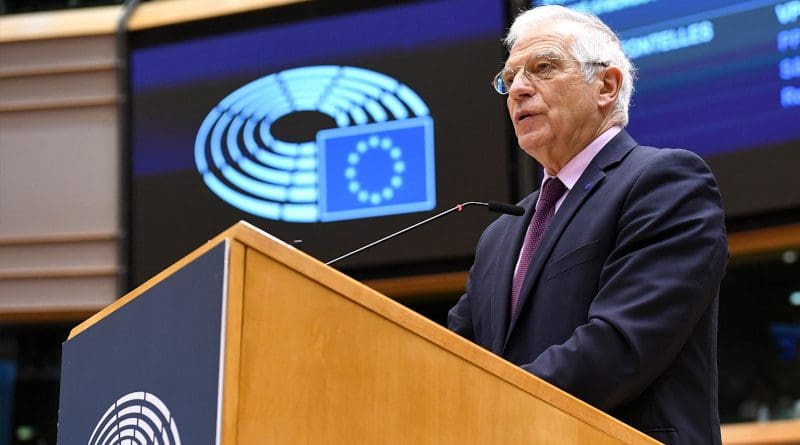Alexandra Brzozowski

A full-scale conflict in Europe is “no longer a fantasy” and Europeans must find new ways to financially prepare for a potentially wider war on the continent, the EU’s chief diplomat Josep Borrell warned on Tuesday (9 April).
“War is certainly looming around us (…), and a high-intensity, conventional war in Europe is no longer a fantasy”,” Borrell said in a speech at an economic forum in Brussels.
“Russia threatens Europe” through its war in Ukraine and hybrid attacks on EU member states, he added.
“It [the war] is not going to start tomorrow, but we cannot deny reality,” he said in the most explicit comments to date.
His comments come after several European military chiefs have recently issued warnings of Russia potentially trying to undermine NATO in the coming decade.
Since Russia invaded Ukraine in 2022, Europeans have reversed decades of cutting back defence spending and stepped up plans to boost their defence industrial production capacity.
However, European efforts to increase weapons deliveries to Ukraine and re-arm their domestic military forces have only slowly begun to gain traction, with the most sensitive issue being the future financing of more defence investments.
“EU member states created a [European] Defence Agency but did not finance it,” Borrell said, adding that the body is needed due to the “duality between those who have knowledge about weapons and have been making reports for years to which no one paid attention.”
Given that Europe’s security situation was an “existential crisis,” Borrell noted the lack of urgency in finding new ways to ramp up defence investment.
“We need a new intergovernmental financing vehicle (…) comparable to the one that we created during the [eurozone] financial crisis”.
Some EU leaders, spearheaded by Estonia, have called for that financing to be raised through more common debt via joint defence bonds.
Another proposal would see revenues from Russian assets frozen in Europe transferred into the European Peace Facility (EPF) or more radical calls to loosen the bloc’s rules that would allow the EU’s budget to fund weapons.
EU leaders in March also pushed the European Investment Bank (EIB) to adapt its policy for lendingto the defence industry and its current definition of dual-use goods.
However, most of these efforts are seen as insufficient to generate enough financial capabilities to stem the anticipated need for more defence spending.
The EU’s chief diplomat also addressed the growing fear among Europeans over a potential return of former US President Donald Trump, who has threatened not to defend NATO allies in Europe that do not spend enough on defence.
“The US umbrella, which we have relied on since the Cold War, may not be open all the time,” Borrell said.
“Maybe, depending on who is ruling Washington, we cannot rely on America to protect us.”
“Within an alliance, the priorities for individual members may change,” he added.
No comments:
Post a Comment